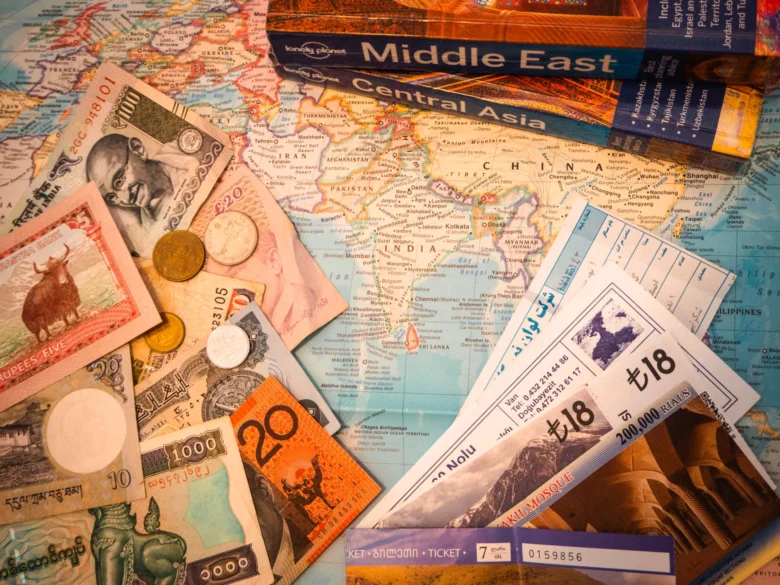As a student, traveling can be fun and life-changing. It allows you to get to know other cultures, make memories that will last a lifetime, and discover new ones. As a result, students often have to find a way to balance the desire to travel with limited resources. Fortunately, if you plan and use your resources wisely, you can have great travel adventures without spending a lot of money. This guide provides essential budget travel tips for students, covering everything from where to stay and how to get around to what to do and eat.
1. Student-friendly Housing
One of the most difficult things for student travelers is often finding cheap accommodation. Traditional hotels can be pricey, but there are other affordable options. Students like dorms because they are cheap and crowded. Websites such as Booking.com and Hostelworld offer a wealth of information about hostels around the world. Many of these sites have reviews and scores that can help you choose the best one. Another cheap option is to stay with locals through sites like Couchsurfing. The service matches travelers with hosts who are willing to offer them a free place to stay. This allows travelers to directly experience the local culture. House-sitting and pet-sitting services can also provide you with a free place to stay in exchange for caring for someone else’s home or pet while they are away.
2. Sufficient Budget
A student’s travel budget can also be affected by travel costs, but there are ways to reduce costs. You can find the best flights by planning and using fare comparison sites such as Skyscanner and Google Flights. Also consider going at a less busy time, as flights are often cheaper. When traveling overland, cars and trains are often cheaper than flying, especially for short distances. For example, in Europe, low-cost bus companies such as FlixBus and Eurolines make it easy to get from one city to another. With a Eurail Pass, you can save a lot of money when traveling through many countries by train.
3. Eating Well Without Breaking the Bank
Traveling also costs a lot of money, but there are many cheap ways to eat delicious food. Often the best places to find cheap, authentic food are the street markets or neighborhood markets. These options are not only cheap but also allow you to try some of the local cuisine and culture. You can save a lot of money by cooking your food, especially if you live somewhere with a kitchen. You can further earn your income by preparing simple meals and shopping at local markets or supermarkets. When dining out, look for places with set menus or lunch specials. These are usually cheaper than à la carte.
4. Making the Most of Free and Low-Cost Activities
Many of the best things about traveling is that it doesn’t cost a lot of money. Nature walks, hikes and free attractions are all great ways to discover new places without spending a lot of money. In many cities, you can take a free walking tour with an expert guide who asks for a tip. These tours are a great way to learn about the history and culture of the area. Museums and other cultural sites often offer cheap or free admission on certain days of the month or week, so do some research and plan your trip around these days. Students also get discounts on tickets to shows, attractions, and events, so make sure you bring your ID and ask about discounts. Hiking, going to the beach, and having lunch in the park are all fun things to do outdoors that aren’t expensive. You can also have unique and memorable experiences without spending a lot of money by attending festivals and events in the area.
5. Smart Money Management
If you want to travel on a budget, it is important to manage your money well. Determine how much you can spend each day and stick to it as much as possible. You can use a budgeting app to track your expenses and costs. You should avoid exchanging money at airports or tourist attractions because the exchange rates there are often not good. To get a better exchange rate, use an ATM near you or go to a bank. You may also want to get a travel credit card that doesn’t charge fees when you use it abroad and always pays in the local currency to avoid extra fees. Additionally, you should have a backup plan in case something goes wrong. Keep small amounts of cash hidden from your main pocket. Also make copies of important documents, such as passports and insurance information.
6. Networking and Making Connections
Meeting new people and building relationships is one of the best things about traveling. Going this route will not only make your trip better, but it will also save you money. You can meet other travelers and people in the area by joining travel forums and social media groups, which can offer you tips, information, and even places to stay. By meeting other travelers at hotels, tours, or Couchsurfing events you can gain useful tips and information. You may be able to find other travelers to share the costs, such as when you rent a car or sign up for a group trip.
Conclusion
Traveling on a student budget requires some creativity and ingenuity, but you can have great adventures without spending a lot of money. If you watch your money, look for deals and free activities, choose your accommodation, and travel wisely, you can travel the world and have the experiences of a lifetime without spending a lot of money. Be adventurous, open to change, and enjoy the journey.
FAQs
1. How do you find cheap accommodation when traveling as a student?
Students can find cheap accommodation by staying in hotels, staying with locals for free through sites like Couchsurfing, or renting an apartment or room through Airbnb. House-sitting and pet-sitting services can also provide you with a free place to stay in exchange for caring for someone else’s home or pet.
2. What are some ways to reduce transportation costs?
Students who want to save money on transportation should plan their trip and use websites that compare fares. Traveling by bus or train is usually cheaper than traveling by plane. By taking the bus, renting a bike, or walking around the city you can save money.
3. What are some inexpensive ways students can eat well while traveling?
If students want to eat well without spending a lot of money, they can opt for street food and local markets, prepare their meals if the dormitory has a kitchen, and look for restaurants with lunch deals or set menus. Avoid touristy places and go where the locals eat, where you can find cheaper and more authentic food.
4. What are some things student tourists can do that cost little or nothing at all?
Many fun things to do while traveling are free or very cheap. Students can do things like explore nature, take free walking tours, visit museums and other cultural sites on days when admission is cheap or free, hike, go to the beach, and attend local festivals and events.
5. What advice do you have for students moving with money?
Students must draw up a daily budget and stick to it. They should also use a budgeting app to track their expenses and transact money at banks or ATMs in their area for better rates. It’s also a good idea to have a travel credit card that doesn’t charge fees for use abroad and to keep extra cash and copies of important documents.
6. How can students network and make connections while on the road?
Students can meet other travelers by joining social media and travel websites, talking to travelers at hotels or on tours, and participating in Couchsurfing events. Getting to know other tourists and people who live in the area can give you tips, advice, and ways to spread the costs.




